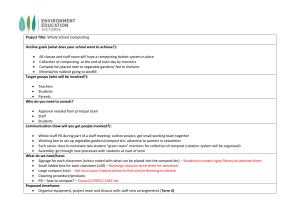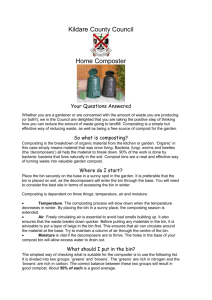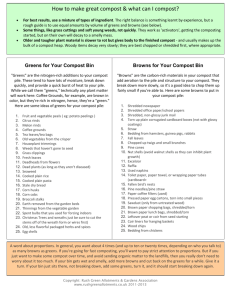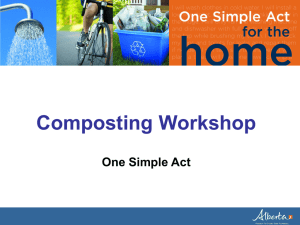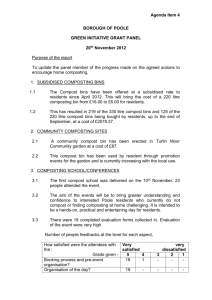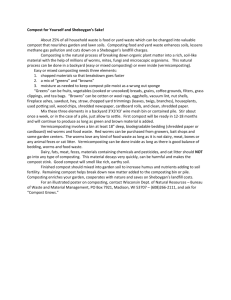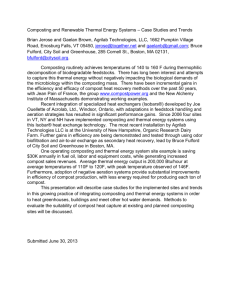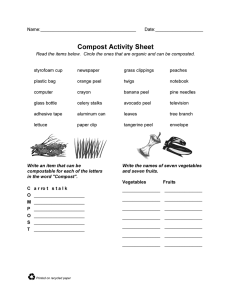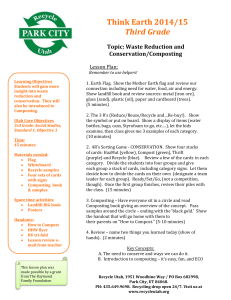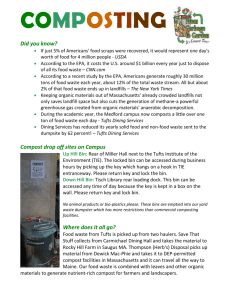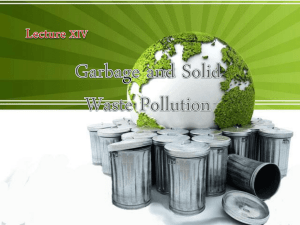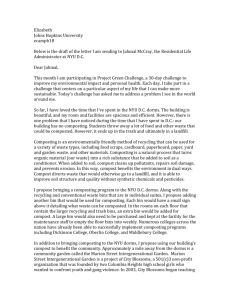What can I compost… - Leicestershire Villages
advertisement
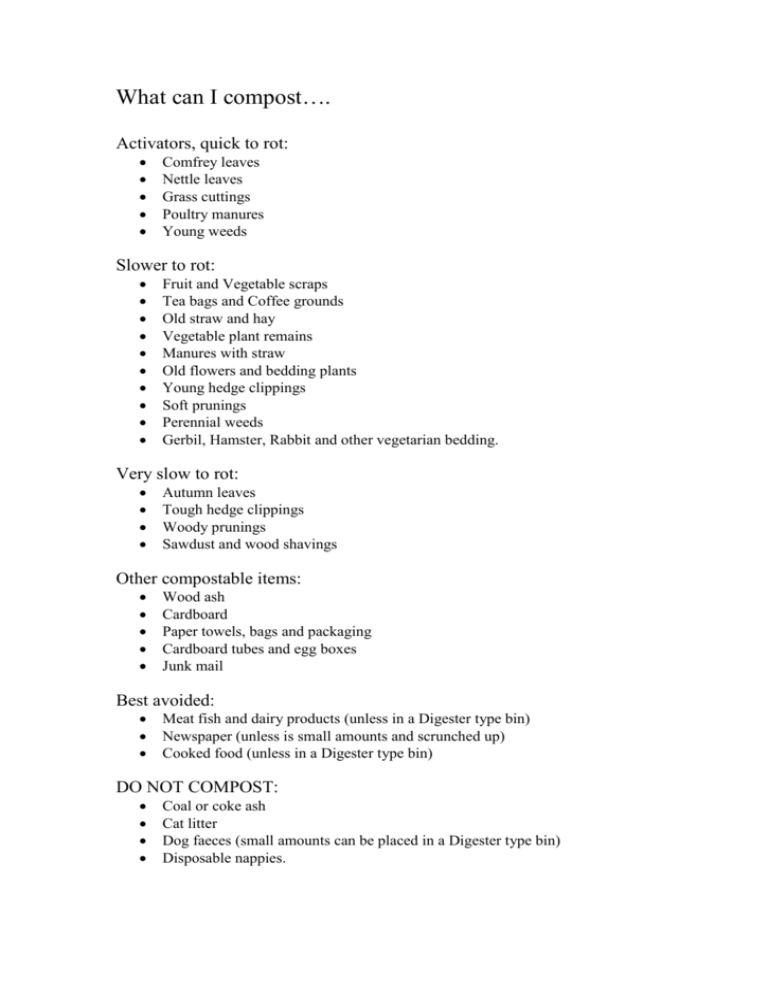
What can I compost…. Activators, quick to rot: Comfrey leaves Nettle leaves Grass cuttings Poultry manures Young weeds Slower to rot: Fruit and Vegetable scraps Tea bags and Coffee grounds Old straw and hay Vegetable plant remains Manures with straw Old flowers and bedding plants Young hedge clippings Soft prunings Perennial weeds Gerbil, Hamster, Rabbit and other vegetarian bedding. Very slow to rot: Autumn leaves Tough hedge clippings Woody prunings Sawdust and wood shavings Other compostable items: Wood ash Cardboard Paper towels, bags and packaging Cardboard tubes and egg boxes Junk mail Best avoided: Meat fish and dairy products (unless in a Digester type bin) Newspaper (unless is small amounts and scrunched up) Cooked food (unless in a Digester type bin) DO NOT COMPOST: Coal or coke ash Cat litter Dog faeces (small amounts can be placed in a Digester type bin) Disposable nappies. The right balance: Composting organisms require two main types of ‘food’ which we call “Greens” and “Browns”. We recommend an approximately equal proportion of Greens and Browns for home compost bins. Rebalancing the proportion of Greens and Browns can solve many composting problems; for example, if the compost gets wet and slimy there will be too high a proportion of Greens in the bin. You can remedy this by adding more Brown materials such as leaves or sawdust. Browns: Purpose: Description: Example: Provide energy for the composting organisms Dry, fibrous material Paper, Cardboard, Dry leaves, Woody prunings Greens: Purpose: Description: Example: Provides nutrients for composting organisms Soft, sappy materials Kitchen waste, Grass clippings, Young weeds. Too wet: Effect: Result: Caused by; Solution: Air spaces become clogged restricting the amount of oxygen available to the composting organisms Mixture appears slimy or water logged; unpleasant smells. Too many ‘Greens’ which contain high levels of moisture. Add more ‘Browns’ Too dry: Effect: Result: Caused by: Solution: Materials become harder for the micro-organisms to break down. Composting slows down and may almost come to a stop. Materials do not break down; ants may build nests in the bin. Too many ‘Browns’ Add more ‘Greens’ or additional moisture.
